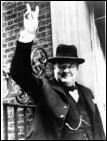AUGUST, 2007
In this issue:
1. Reader Comments
2. Newsbits
3. August Editorial: “Ending the Leadership Development Myth”
4. Preview: Next Month’s Editorial
5. Quote of the Month – Elizabeth Barrett Browning
6. Hot Link of the Month
7. Want to Blog?
8. “Click and Watch” of the Month NEW
******************************
1. READER COMMENTS
Thanks to U.S. subscribers Stewart Levine, Peter Turla, Joanie Misrack, Jerry Avila, Dar Gillette and to Jeroen van Zelst in The Netherlands, Yvonne Porter in Canada for their kind words. Other past comments.
********************
2. NEWSBITS
August 15 Teleseminar with Matthew Gilbert
I will be Matthew’s guest for The Workplace Revolution teleseminar as part of the Shift in Action program for the Institute of Noetic Sciences (IONS); Matthew is editor-in-chief of Shift: At the Frontiers of Consciousness, the Institute’s quarterly members publication; the date is August 15, 5-6 PM California (PDT) time. I have been given a special code for friends and offer it to any subscribers wishing to be on the call. Call (641) 594-7500, then code 1084202#.
Millennium Project Video
I recently got involved with a think tank examining the UN millennium goals – AC/UNU Millennium Project – which has posted a series of videos on the 15 global challenges. Here is a 1 1/2 minute YouTube video on long term thinking, a bit dated but still very relevant, which I think is worth watching..
“Outsourcing Citizenship” Op-Ed Available
My most recent op-ed piece – “Outsourcing Citizenship” – is available to download and send to your favorite newspaper opinion editors if you agree with it. It has been turned down by the Washington Post, L.A. Times and The New York Times so there are no contraints on my rights. Send it on to anyone you know who might get it some media exposure with my blessing.
“The Conscious Organization” Article Available
A British journal entitled Spirit in Work just published an article of mine, “The Conscious Organization: Workplace for the Self-Actualized.”
******************
3. AUGUST EDITORIAL
What makes a good leader? Are they born or made? This has been an ongoing inquiry for the past half century, ever since the subject of leadership became a serious academic pursuit.
Countless books have been published on this topic. An endless variety of workshops and trainings are commissioned by human resource directors and endured by corporate workers each year. The field of study has occupied thousands of academics, consultants, trainers, authors and HR professionals, trying to make leaders out of non-leaders, to make managers better leaders and, supposedly, to improve organizational performance. Tens of billions are spent each year despite a majority view amongst those who authorize these expenditures that their “bang for the buck” doesn’t meet their expectations.
Mother Teresa Susan B. Anthony Winston Churchill Nelson Mandela
From a rationale perspective, more leadership training, more knowledge, means better leaders. This makes intellectual sense. But it doesn’t work! Just as more money for schools does not always lead to better education for children, more information is not necessarily giving us better leaders.
Since the linear approach isn’t very successful, let’s look at the challenge of leadership from a whole systems or holistic perspective. If the obvious intervention (more information, more money) doesn’t yield improved leadership then it is plainly ineffective. It may be an obvious place to try (from a linear point of view) but if it doesn’t yield the desired result why keep doing it?
So where does one look for the key, the leverage point, for increasing the quality of leadership in our society? In the past year, I have come across three separate and unrelated peeks into this mystery. Each one points to the challenge and brings its own wisdom, its own facet of the key to the solution.
Last year I worked with two consultants who were writing a book based on research they had performed by interviewing over 400 managers and leaders in organizations. Gary Heil and David Kyle asked these people which leaders and which qualities they most admired. Not surprisingly, the lists were very similar among all the respondents. Pretty much the same people were named and the same admired traits were listed. Mandela, Churchill, MLK, Mother Teresa and others were on most lists. More surprisingly, there were few leaders cited from the world of business, with some local exceptions, like their boss or their company’s CEO. The traits they admired were also similar, things like courage of conviction, openness and candor, vitality, willingness to do what’s right, not just popular, etc. Then they were asked how they measured up to those qualities they so admired – how well they were putting those admired qualities into practice? The vast majority of them confessed to failing miserably.
I found their findings incredibly curious. How could so many of today’s leaders and managers know what to do in order to be good leaders, even hold strong aspirations to be this kind of leader, yet fail to act consistent with the values and traits they admired? Puzzling!
When Heil and Kyle asked their interviewees this question each respondent gave them pretty much the same answer: they played the game the way their organizational culture seemed to dictate, not by the standards to which they aspired. They traded politics for their aspirations, their comfort for their aliveness. They choose to play it safe and stay “under the radar” rather than stand up for their values and act consistently with the very qualities to which they aspired. You might say they sold their souls and played it safe.
A second bit of input for me were the findings of the authors of Success Built to Last, which was published about nine or ten months ago. Jerry Porras, Mark Thompson and Stewart Emery interviewed hundreds of “enduringly successful” people who had achieved great things in business, politics, education or public service. One of the common keys each enduringly successful person shared: they were inner directed to pursue their passions with full engagement, complete commitment, as if their lives depended upon it. They certainly did not play it safe, try to be politically correct or conform to any organizational culture. They were not particularly well-schooled or well-trained in how to lead or how to succeed. They simply put themselves completely on the line for what they believed!
The third and final bit was from Bill George, former CEO and Chairman of publicly-traded Medtronic, Inc., who addressed the issue of leadership in his new book, True North: Discover Your Authentic Leadership. George points to the biggest challenge facing leaders which is to live integrated lives. Leadership cannot be taught, he claims, because leaders are shaped by life experiences and have a strong sense of purpose. As The New York Times book review stated, “If Mr. George is correct, much of the money spent on leadership development has been wasted.”
This is the same conclusion I’ve reached. Despite the fact that I’ve written, published and edited some modern leadership literature myself, I suspect we don’t need any more content. We don’t need more models. We have all the wisdom we need. We know what good leadership is thanks to the work of past icons such as Burns, Bennis, Wheatley, Kouzes and others. It isn’t playing politics or staying under the radar. It isn’t using up your professional development budget and storing up all those pearls of wisdom for a rainy day. It isn’t about becoming fluent in leadership lexicon. It isn’t following some template one learns in a workshop.
It is acting on what one feels passionately about, developing an idea, righting a wrong or inspiring great performance. It is about taking a stand. We don’t need more books. There are tons of sage books already in print. We don’t need more classes or workshops. We do need more people standing tall for what they believe, for the values they embody.
When someone knows what needs doing and stands by without doing anything about it, a piece of their soul dies.
Let’s end the myth that we constantly need more content for leadership development. It wastes money and time. It generates false hope. It gives people information most of them already know. And it hasn’t done much to produce great leaders.
From a systems perspective, this churning of leadership fodder is fueled as much from the aspirations of the practitioners who identify with being providers of wisdom. This includes authors and consultants (after all, which consultant doesn’t want to be known for leadership wisdom?), publishers and booksellers, business schools with executive development programs, executives who specialize in training and executive development, and over fifty years of tradition. But might it be time to say this idea which was once good and added value in the early years of leadership academe has lost much of its usefulness? Perhaps it is time to shift the focus from content to practice and create organizational cultures that inspire greatness not conformity, exceptionalism instead of the mundane.
As far as I can see, what we need is for all those already well-informed leader candidates to find what makes them come alive and invite them to start doing whatever that is. As Howard Thurman wrote, “What the world needs is people who have come alive.”
Let’s drop the perpetual search for something outside of ourselves, something to fill some lack or vacancy, and turn inward and summon the will and the courage to stand tall for what we see needs doing!
[NOTE TO SUBSCRIBERS: I am working on a longer, more comprehensive version on this subject for a major academic journal and am looking for a couple of senior executives in high-profile companies who would share their thoughts on this subject. If you know someone who fits this profile, please share this editorial with them and have them send me their thoughts “for the record’ (ie, their comments would appear as quotes) and I will cite them by name in the finished article. Alternatively, send me their email addresses and explain who they are and I will contact them. Many thanks, JR]
***********************************
4. NEXT MONTH’S EDITORIAL: “Revisiting Blessed Unrest”
***************************************
5. QUOTE OF THE MONTH:
“With stammering lips and insufficient sounds, I strive and struggle to deliver right the music of my nature.” – Elizabeth Barrett Browning
******************************************
6. HOT LINK OF THE MONTH:
WiserEarth is a community directory and networking forum for not for profit and non-governmental organizations addressing the central issues of our day: climate change, poverty, the environment, peace, water, hunger, social justice, conservation, human rights, and more. It is a wiki, with content created by people like you from around the world.
****************
7. WANT TO BLOG?
My blog – “Exploring the Better Future” – is located at the Global Dialogues Center; take a look and post your comments. I’d love to hear from some of you subscribers!
******************************
8. NEW “Media Click” of the Month (see Audio and Videos, including Humorous, Provocative and Inspiring Videos
“Global Mind Change” a video from Global Mindshift



